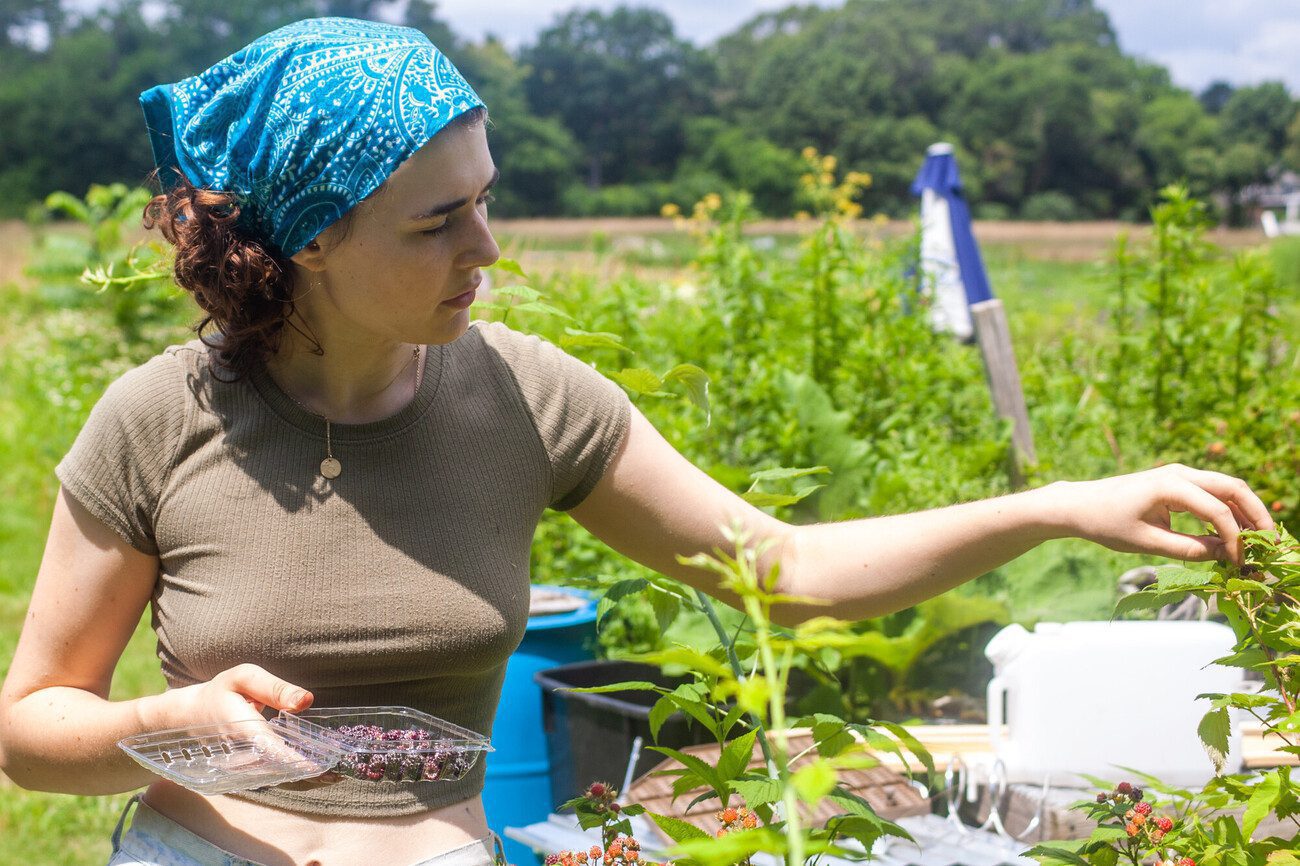PEABODY — Newhall Fields Community Farm is growing fast, fueled by its grassroots support.
The only trouble with the farm can be finding it behind Tillie’s Farm Stand on Lynn Street.
Co-founder Rebecca Ingalls said her goal is to improve the farm’s visibility in the community.
“I think people need to know we’re here,” Ingalls, of Swampscott, said.
The farm was the brainchild of Ingalls and co-founder Jeannette McGinn. They met in 2018 and began utilizing the field, which had sat fallow for years despite being set aside for agricultural use by the city.
Originally, the two used the land to plant herbs because of Ingalls’ background as a community herbalist for many years in Salem.
After that first year, the farm became a nonprofit in 2019 and expanded to include around one acre of herbs, perennials, berries, and vegetables on the land, as well as an onsite greenhouse for propagating.
“We’re sort of in an era of expansion,” Farm Manager CJ Hughes said.
Hughes began farming in 2017 and became Newhall’s manager in 2022. She said the farm’s yield is expected to jump to 8,000 pounds of food in 2023 after producing almost 6,000 pounds in 2022.
She noted that, unlike other community agriculture projects, Newhall Fields is truly a joint effort.
“It’s not a community garden where everyone has their own plot,” Hughes said. “It’s a community farm, we’re all farming together.”
Hughes also noted the farm does everything it can to be sustainable and healthy, from not using pesticides on crops to utilizing recycled grain from breweries as mulch.
“It’s important to the mission of the farm to be good for the earth and the community,” Hughes said. “We want people to be able to access this food and have it be as nutritious as possible.”
However, that access has led to high demand for the farm, the leadership of which had to pause enrollments for a produce-box program when they realized it could not meet the flood of sign-ups. Hughes noted that 80% of the produce goes to homes with low to moderate income.
“We really saw the need,” Hughes said. “It hurt us to cut it off. We’re trying to scale up so we can reach people.”
She stressed that the farm is doing all it can to produce as much as possible with its small team of dedicated volunteers, as well as a youth-crew program funded by the state. She said there have also been groups from local high schools, colleges, and even corporate team-building programs that have helped out at the farm.
“We have a lot of community support, a lot of people that want to lend a hand and that want to get outside,” Hughes said.
Ingalls said balancing the demand for the produce boxes, which cost between $10 and $20 and are SNAP and HIP approved, and donations to local organizations like Haven from Hunger is something that would be solved with more support, whether it be from volunteers or financial support in the form of grants and gifts.
She said ideally the farm would add more full-time paid staff to support the efforts of Hughes, who currently works as the only full-time paid worker. According to Ingalls, the ultimate goal would be to use all of the two acres at the farm’s disposal.
“We want to double what we’re doing,” Ingalls said. “It’s been a lot of work to maintain this size of project.”
Ingalls said for her, being at the farm is a sort of therapy, something she often hears from other volunteers.
“Everybody feels it that comes here and engages,” Ingalls said. “They’re hooked”
Hughes, who in the past worked for larger farming operations in Vermont, said that the importance of urban farming is something that requires more attention and support to address the issues of food security many communities like Peabody are facing.
She said that improving access to nutritional foods in the community, by the community, is something that has always been part of her mission as a farmer.
“It’s definitely a totally different type of farming… It’s much more interactive, it’s much more involved with the community,” she said. “This is what I wanted to do when I started farming.”

